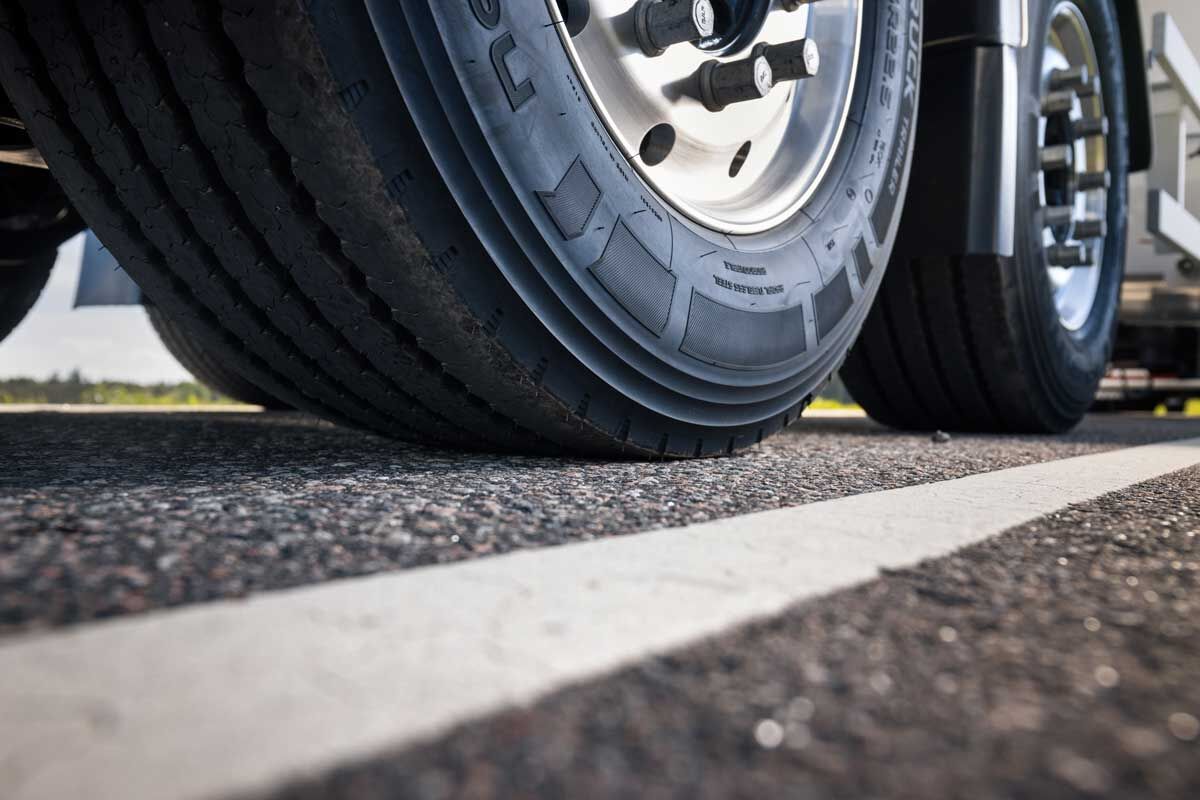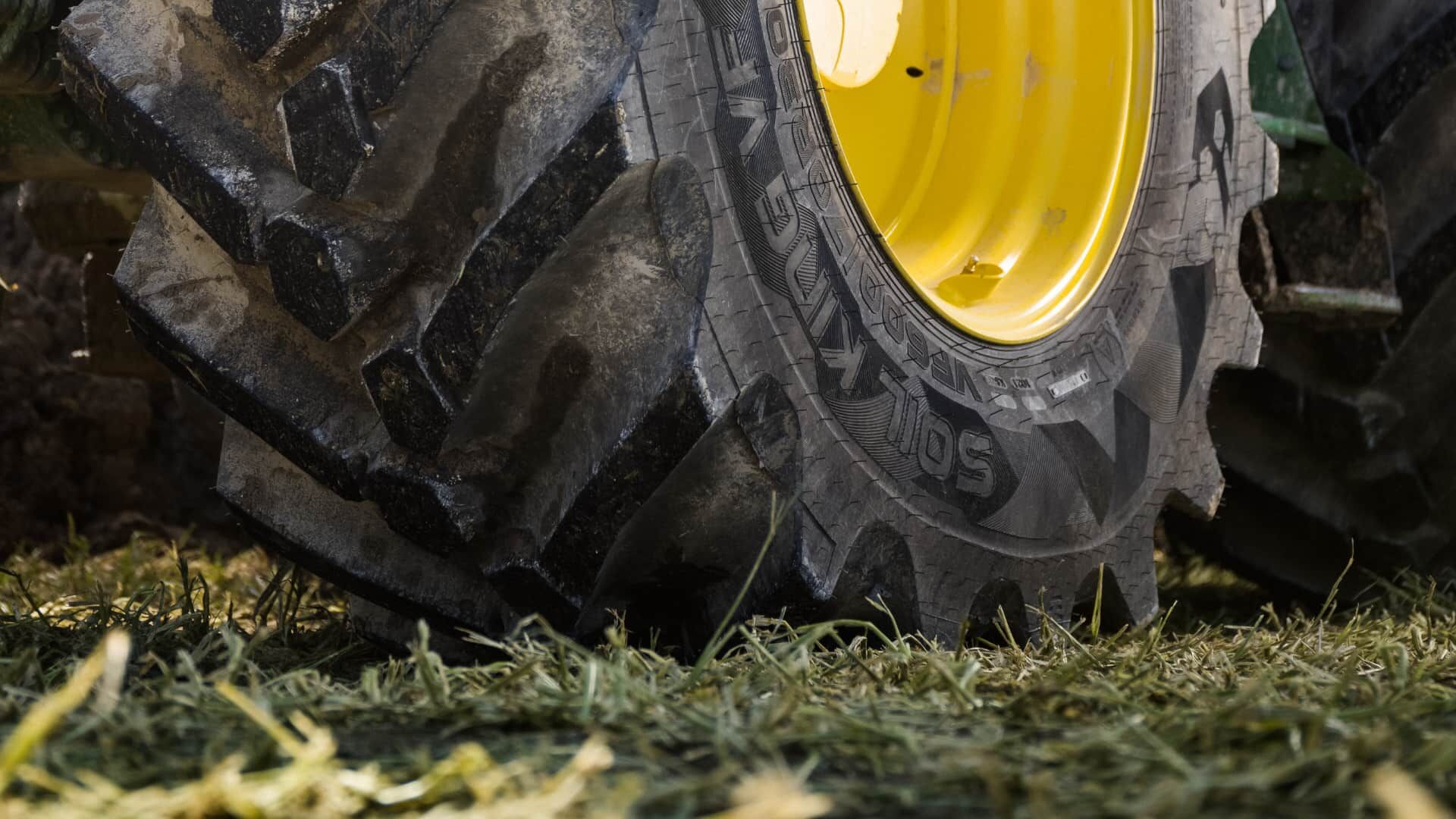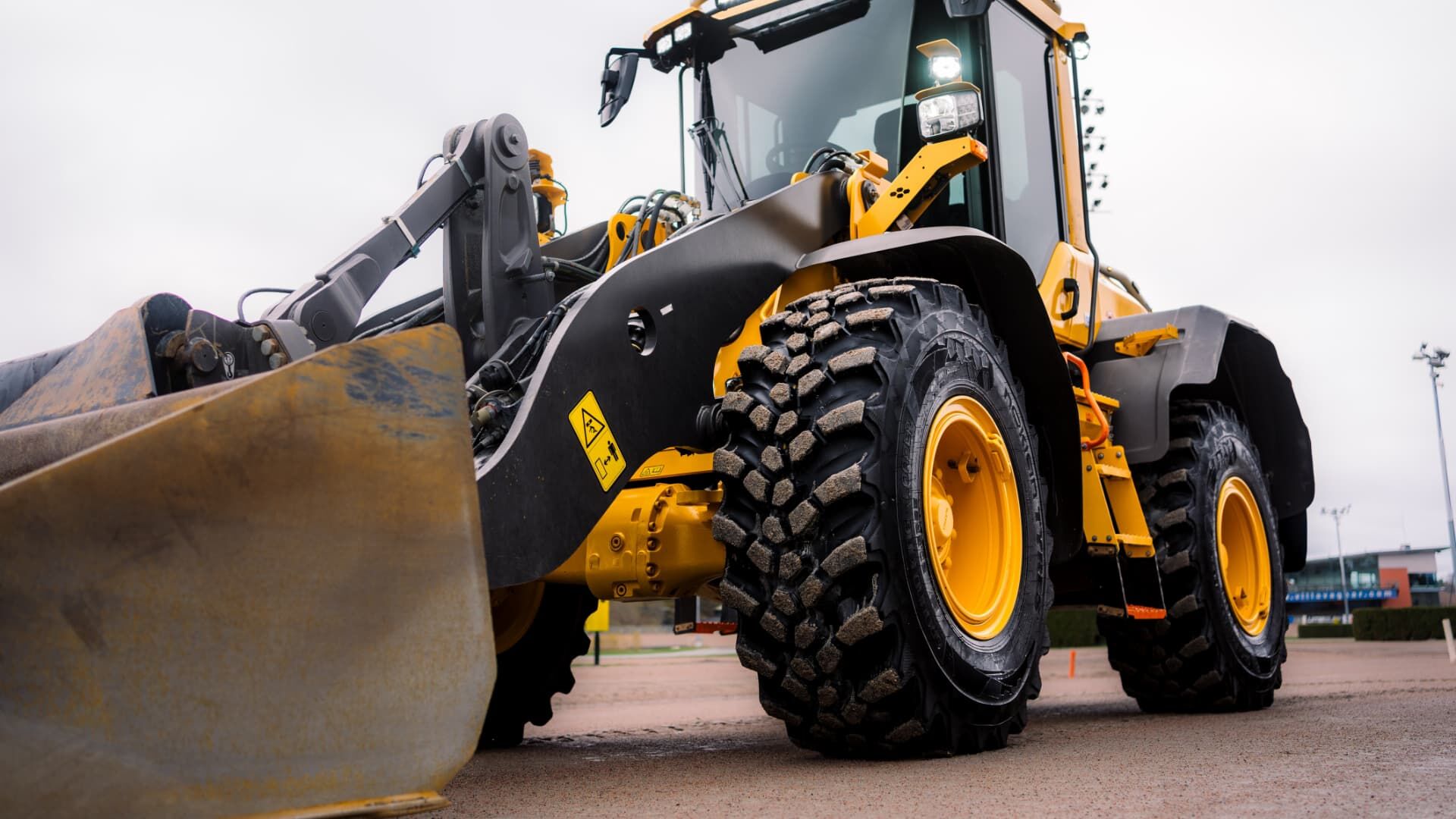
The performance of agricultural equipment and soil health are important for farm productivity and crop yields. One key to successful agricultural work is the choice of tractor tires. The right choice of tires improves soil friendliness, grip on soft terrain, and fuel efficiency. So-called flotation tires enhance performance while minimizing soil compaction under the tractor’s heavy load.
Learn how to get the most out of your farming operations with the right choice of flotation tractor tires.
What are flotation tires?
In agriculture, flotation is the tire's ability to distribute the weight of a machine and implements, such as a tractor and its trailer, over a larger surface area. Thanks to a more even distribution of weight, there is less pressure on the ground surface underneath the vehicle, which is crucial for ensuring the well-being of soil and optimized crop yield.

Their special design makes flotation tires sink less into the soft terrain. As a result, flotation tires reduce damage to the soil under the tractor’s load. The flotation qualities of tires are valuable for tractors but also for their implements, such as trailers and balers. These qualities are all the more important in soft, loose, and wet conditions where soil compaction and wheel slip are more pronounced.
Main characteristics and benefits of flotation tires
Some characteristics of flotation tractor tires include:
- Wider Tread: One key characteristic of flotation tractor tires is a wider tread that enables a larger, more distributed footprint. A narrow tread, on the other hand, concentrates more weight on a smaller area.
- Lower tire pressure: To provide greater flotation characteristics, more specialized tractor tires can operate with lower inflation pressures, spreading weight more evenly and reducing soil compaction.
- Tire proportions: Flotation tires should be as large as possible to have as large of a footprint as possible. The optimal flotation tire is as large as your equipment allows.
Tires for implements, such as trailers and balers, have specialized tread patterns. These tires have shallower and denser tread patterns, which allows them to carry large loads. Besides their tread patterns, these tires are sized differently compared to tractor flotation tires.
Traction vs. flotation in tractor tires
As opposed to flotation, traction refers to the ability to maximize the grip between a tire and the ground. This is achieved with the tire’s tread pattern. Greater traction provides the necessary force to move the tractor forward. This quality is valuable, especially in challenging conditions.
Balancing between flotation and traction is a game of finding the right level of desired qualities without compromising performance and safety. Luckily, choosing between flotation and traction does not have to be a trade-off.
Tractor tires with a large footprint and low inflation pressure can provide both traction and flotation. This helps minimize soil compression while carrying heavy loads. Furthermore, tires with a large contact surface help increase crop yield.
Nokian Tyres tractor tires for agricultural work, such as the Nokian Tyres Soil King VF, provide a great grip in all conditions, both in the field and on-road use.
Tractor tires for minimal soil compaction
Consider the following when choosing flotation tires for your tractor:
- Size and weight of tractor and its implements
- Field conditions and other environments where the tire is used
- Tire size and compatibility with the tractor, including load and speed ratings
- Tread design and other manufacturer-specific tire technology
- Manufacturer recommendations (read our technical manual for information about Nokian Tyres products)
- Choose the largest possible tire, considering the constraints of your equipment
Please remember that it is the driver’s responsibility to ensure their tires are safe and suitable for their vehicle and to follow the vehicle’s manufacturer´s guidelines for proper use and maintenance. Consult your closest Nokian Tyres dealer or your vehicle’s manufacturer for specific advice.


